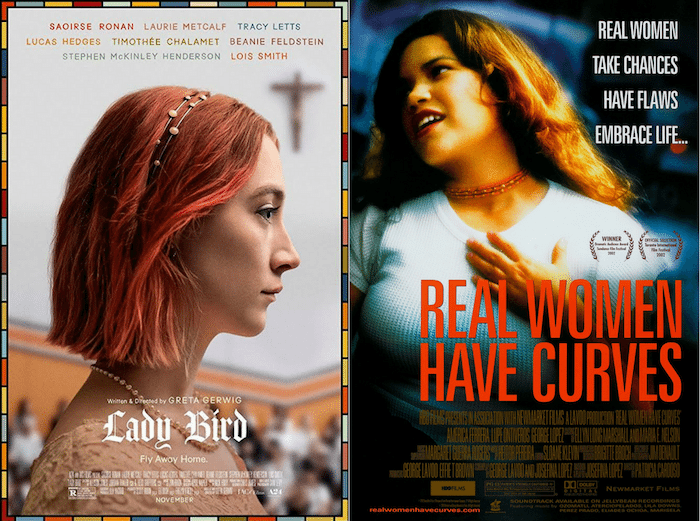

So near the end of the year, we published two opinion pieces by Michelle Cruz Gonzales that dove deep into the strong similarities between Real Women Have Curves and Lady Bird, which garnered five Academy Award nominations. The first opinion piece asked, “Did Greta Gerwig’s LADY BIRD Plagiarize REAL WOMEN HAVE CURVES?” Yes, we know the piece might have rocked some boats, so much that we published a second opinion piece, “Of LADY BIRD, REAL WOMEN HAVE CURVES, and Revisiting the Question of Plagiarism,” about a week later.
As expected, some people didn’t like the fact that we published these two pieces. What else is new? Nonetheless, before you all flood our comments with more critiques, we did want to share a recent Spanish-language interview with Josefina López, who wrote Real Women Have Curves as a play and then helped write the screenplay. In that Hoy Los Angeles story, López brought up some of the same points that Cruz Gonzales raised.
Here is what the Spanish-language said:
López cuenta que cuando vio “Lady Bird” sintió que estaba viendo su película. “Lo disfruté y en ocasiones seguí pensando: ‘Vaya, la madre es como la mamá de mi película. Vaya, no la dejarán ir a la universidad como Ana'”.
Pero más allá del conflicto principal de la película, López vio más motivos para pensar que la nominada a los Oscar es una “versión ‘en blanco’ de su película”.
Al hablar del tema López llega hasta las lágrimas, pues asegura que no fue fácil salir de las sombras como indocumentada e imponer su sueño de convertirse en dramaturga y quedarse en Los Ángeles para defender a su comunidad y trabajar para que en el cine sus historias no sean descartadas continuamente.
And here is our translation:
López says that when she saw Lady Bird, she felt that she was watching her movie. “I enjoyed it and sometimes I kept thinking, ‘Well, the mom is like the mom in my movie. They won’t let her go to college like Ana.'”
But beyond the film’s main premise, Lopez saw more reason to think that the Oscar nominee is a “white version” of her film.
When talking about the topic, López’s eyes tear up, because she says it was not easy to step out of the shadows as an undocumented woman and follow her dream of becoming a playwright and stay in Los Angeles to defend her community and work so that her stories wouldn’t get continuously discarded in films.
In addition, the Spanish-language story ends with this:
“Yo también merezco un lugar en Hollywood y la oportunidad de seguir contando historias impactantes. Coescribí una versión mejor de ‘Lady Bird’ que desafía el ‘status quo’. Ojalá mi película hubiera sido apreciada así”, lamentó.
“I also deserve a place in Hollywood and the opportunity to keep telling impactful stories. I co-wrote a better version of Lady Bird that challenges the ‘status quo.’ I wish my movie had been appreciated like that,” she lamented.


